‘France wouldn’t be France without strikes, protests and police baton charges’
Your digest of analysis and commentary from the British and international press
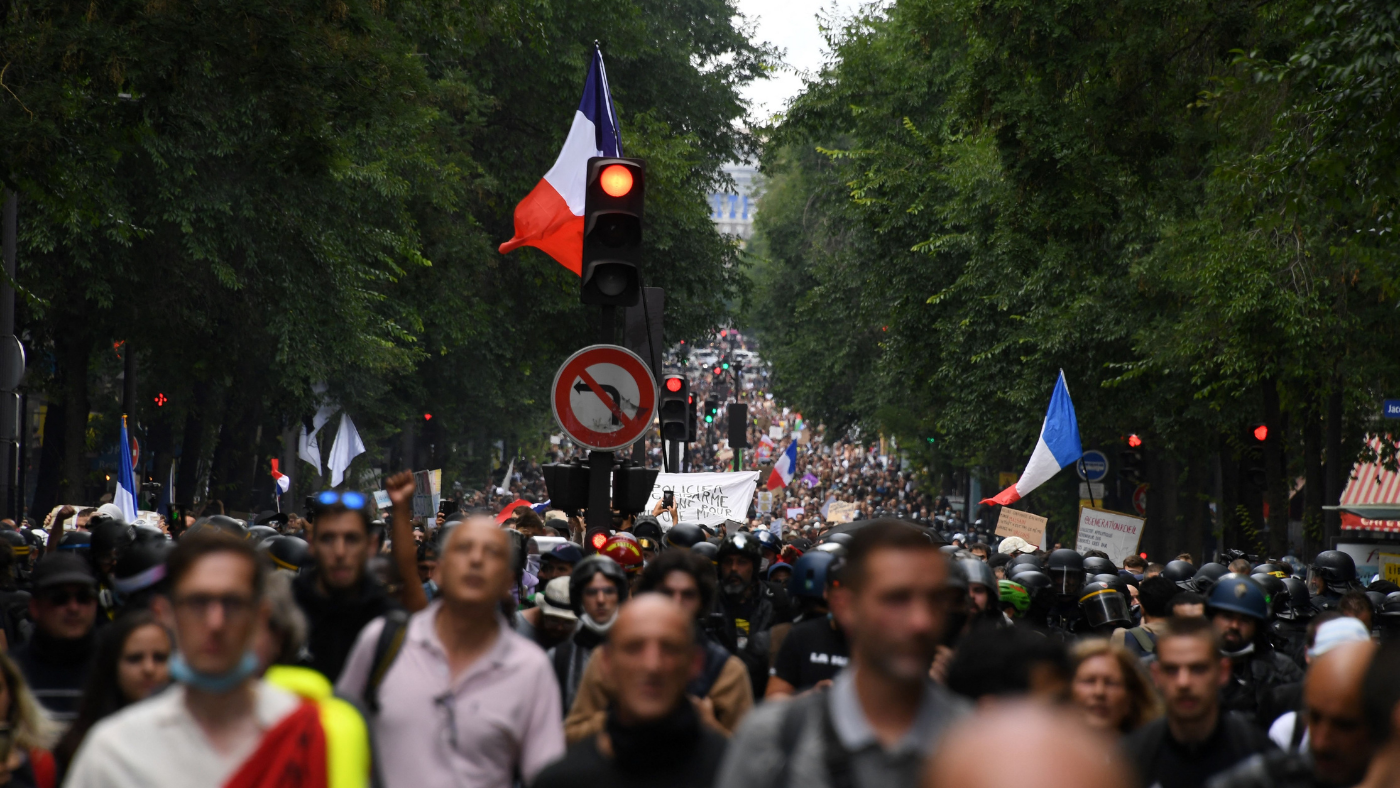
- 1. A word of warning for Brits flocking to France
- 2. Why not locate drug injection centres in hospitals?
- 3. Does Venice hold the key to saving cities from mass tourism?
- 4. If you work from home for too long you become your oddest self
- 5. Welcome to Australia’s pandemic patois: tell us about your lockdown language
A free daily email with the biggest news stories of the day – and the best features from TheWeek.com
You are now subscribed
Your newsletter sign-up was successful
1. A word of warning for Brits flocking to France
Gavin Mortimer for The Spectator
on protests over passports
“Bring an umbrella and your thermals,” Gavin Mortimer tells the hordes of Britons expected to “flock to France”, where summer weather is bad, after the announcement that double-jabbed visitors will not need to quarantine on return to the UK. Brits should brace themselves because “the French are seriously angry”, he writes in The Spectator. Emmanuel Macron’s Covid passport has many key workers ready to take industrial action – and though “a few hotheads may accuse you of being a ‘traitor’” as you enjoy the sights, notes Mortimer, “if you wave your blue British passport you should be OK.” Don’t let this put you off, he adds – “after all, France wouldn’t be France without strikes, protests and police baton charges”.
The Week
Escape your echo chamber. Get the facts behind the news, plus analysis from multiple perspectives.

Sign up for The Week's Free Newsletters
From our morning news briefing to a weekly Good News Newsletter, get the best of The Week delivered directly to your inbox.
From our morning news briefing to a weekly Good News Newsletter, get the best of The Week delivered directly to your inbox.
2. Why not locate drug injection centres in hospitals?
Paul Kearns for The Irish Times
on city planning for medical services
Amid debate over planning permission for Ireland’s first legal drug injection centre, “why do we segregate the medical treatment of those who suffer from substance abuse from general medical services in hospitals?” asks Paul Kearns in The Irish Times. The location of such facilities – highly concentrated in the inner city of Dublin – is “rarely questioned”, says Kearns, but questions should be asked about “what the concentration of such highly visible facilities in disadvantaged neighbourhoods communicates” to young people living nearby. Dublin needs “a more honest and grown-up discussion around the spatial planning” for these facilities. “Greater social and political interrogation”, taking into account “a wider perspective of needs and responsibilities”, would be welcome.
A free daily email with the biggest news stories of the day – and the best features from TheWeek.com
3. Does Venice hold the key to saving cities from mass tourism?
Lionel Laurent for Bloomberg
on an opportunity for tourism
The Italian prime minister has made a “courageous move” in banning giant cruise ships from Venice’s lagoon, writes Lionel Laurent for Bloomberg. The decision “might seem like a no-brainer given the ballooning size and damage caused” by the “floating hulks” – but the economic impact for a tourism industry facing pandemic recovery is very real. Now is the moment for “regulation alongside longer-term reinvention” for the sector, writes Laurent, to protect sought-after destinations from overcrowding and subsequent damage. Such decisions “require guts” and should be seen as a “necessary investment to keep the peace”, the writer continues. “If we want to bring tourism back without destroying the planet, the policy toolbox should grow.”
4. If you work from home for too long you become your oddest self
Tanya Gold in The Telegraph
on missing out at home
Being “thrown into a studio flat with a telephone and told to write about the world” aged 25 surely can’t provide the same memories as working in an office pulsating “with news, with malice, with life”, says Tanya Gold in The Telegraph. Working from home for long enough can lead to oddities and eccentricities, she notes, but after 20 years of being a home worker, the writer agrees with the Chancellor of the Exchequer “that continuing to work from home might harm your career”. Working “beyond society’s gaze” can lead to unconventional habits, but more important is risking “a life without people” – which is, in fact “not life, but slumber”.
5. Welcome to Australia’s pandemic patois: tell us about your lockdown language
Gary Nunn for The Guardian Australia
on a virus vernacular
During a lockdown, joyful distractions are very welcome. And against a backdrop of fatigue that “one day is merging into another fog of repetition and sameness”, writes Gary Nunn for The Guardian Australia, something “novel” is developing in Australia. A “lexical inventiveness” has emerged, with a host of coronavirus-related vocabulary entering the vernacular. The “strollout” mocks the “glacial pace of Scott Morrison’s vaccine rollout”, notes Nunn, and “dick-nose” is an “apt shorthand” for the act of wearing a face mask without covering your nose. “There’s defiant sunshine in every word of this pandemic patois” which “showcases an Aussie spirit” that says “let’s laugh at it now. Else, you’d cry”, writes Nunn.
-
 Political cartoons for February 7
Political cartoons for February 7Cartoons Saturday’s political cartoons include an earthquake warning, Washington Post Mortem, and more
-
 5 cinematic cartoons about Bezos betting big on 'Melania'
5 cinematic cartoons about Bezos betting big on 'Melania'Cartoons Artists take on a girlboss, a fetching newspaper, and more
-
 The fall of the generals: China’s military purge
The fall of the generals: China’s military purgeIn the Spotlight Xi Jinping’s extraordinary removal of senior general proves that no-one is safe from anti-corruption drive that has investigated millions
-
 Bizarre pizza toppings horrify Italians
Bizarre pizza toppings horrify ItaliansTall Tales And other stories from the stranger side of life
-
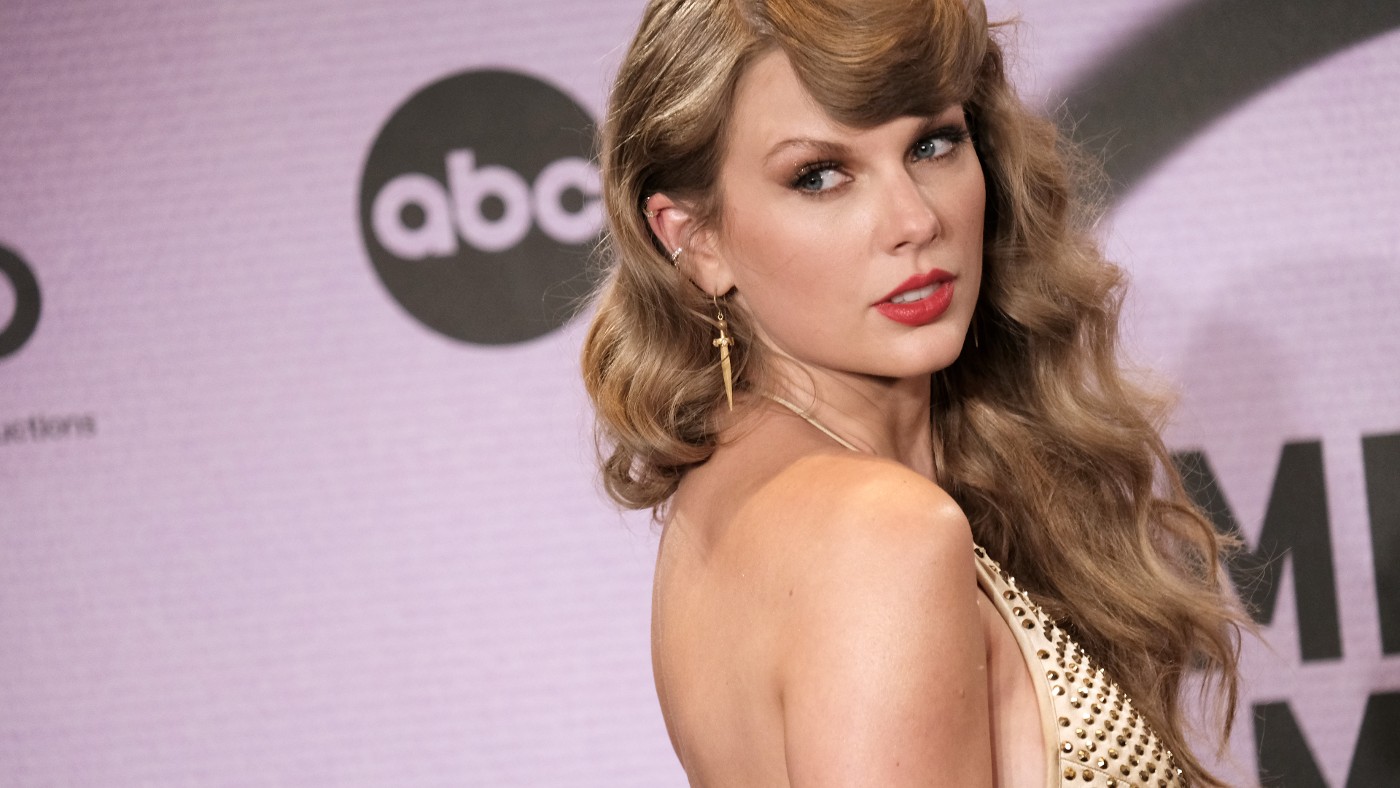 Despairing husband creates 'Taylor Swift jar'
Despairing husband creates 'Taylor Swift jar'Tall Tales And other stories from the stranger side of life
-
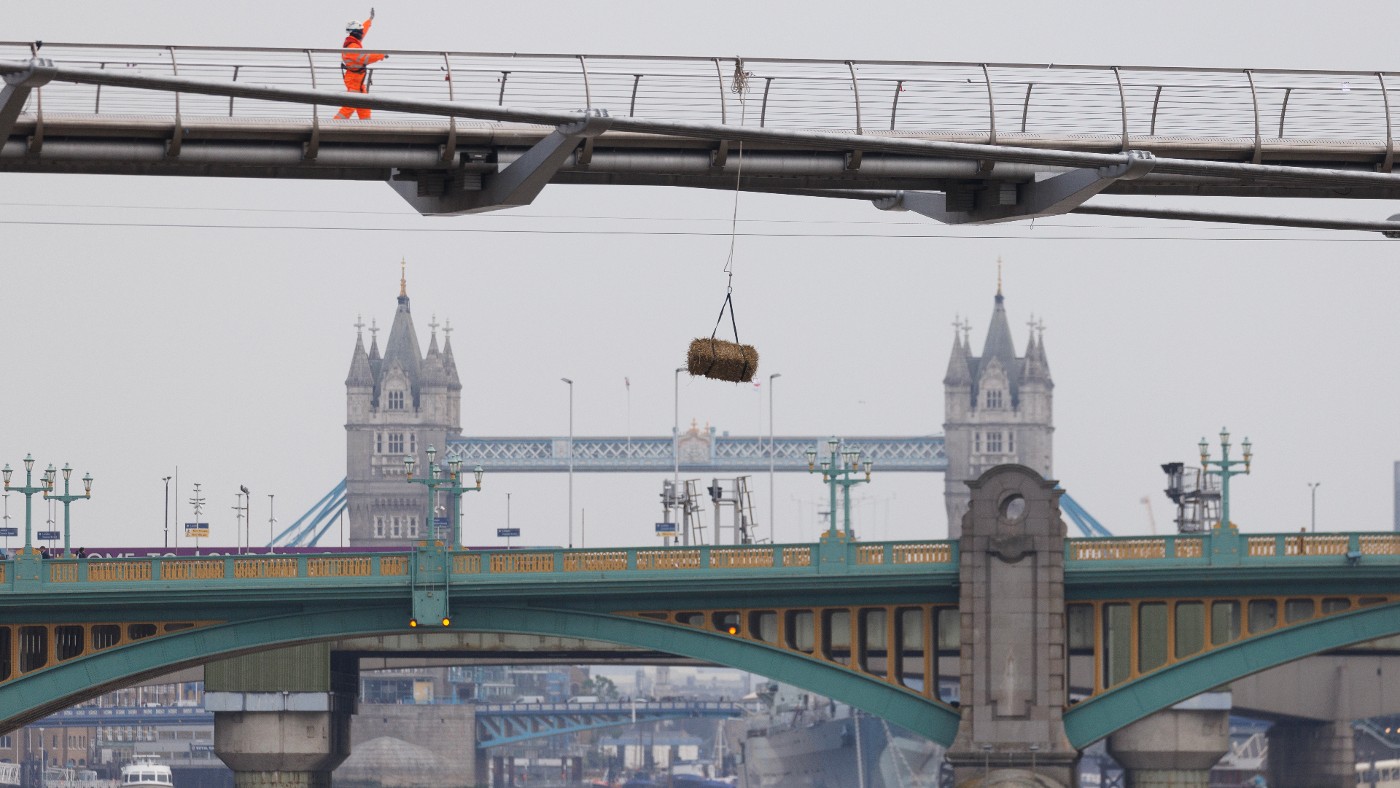 Why a bale of straw is hanging from a London bridge
Why a bale of straw is hanging from a London bridgeTall Tales And other stories from the stranger side of life
-
 ‘Irony’ as Zoom calls staff back to office
‘Irony’ as Zoom calls staff back to officefeature And other stories from the stranger side of life
-
 The U.S. veterinarian shortage crisis
The U.S. veterinarian shortage crisisSpeed Read With an anticipated shortage of 15,000 vets by 2030, it will be harder to get care for pets
-
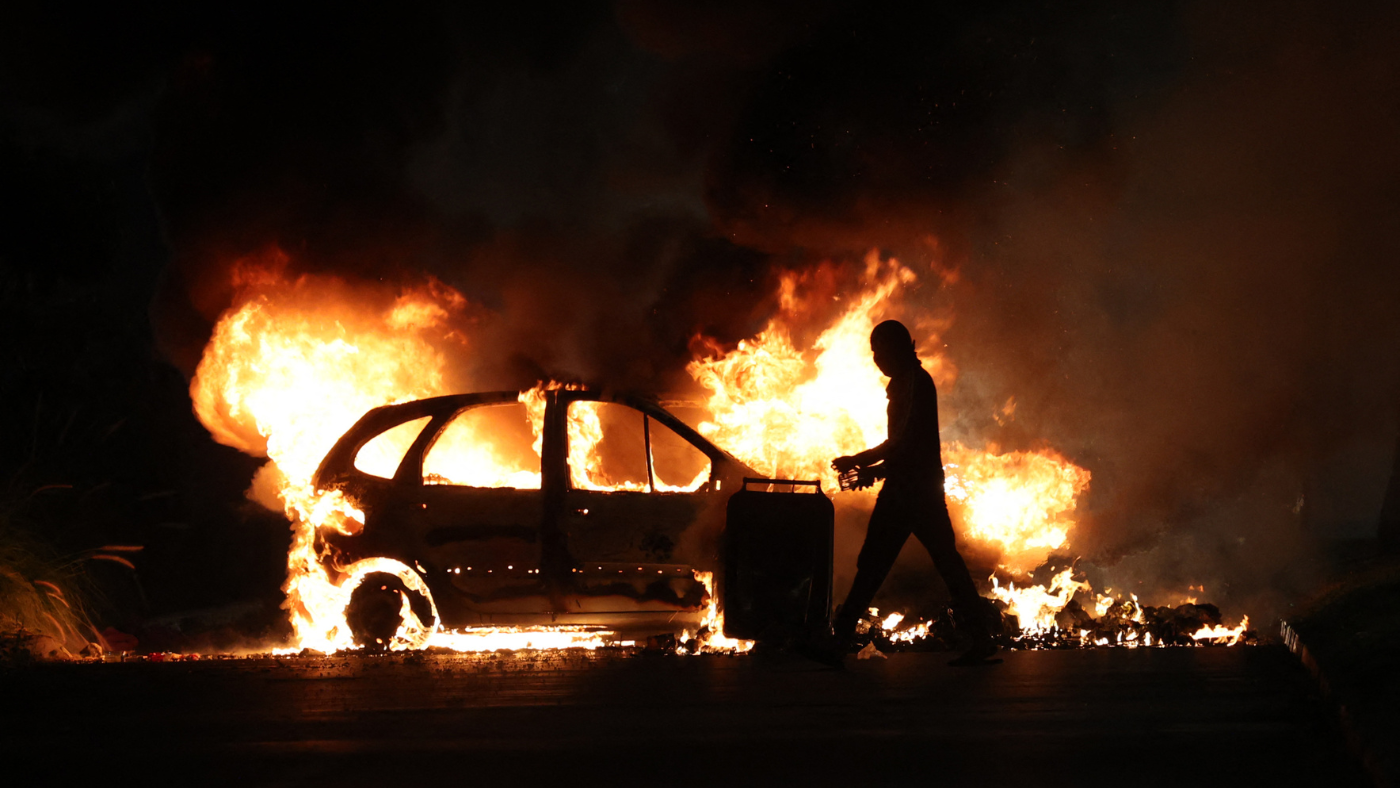 How the world reported French riots over shooting of teenage boy
How the world reported French riots over shooting of teenage boyfeature Violence has ripped through French suburbs in days following death of Nahel M.
-
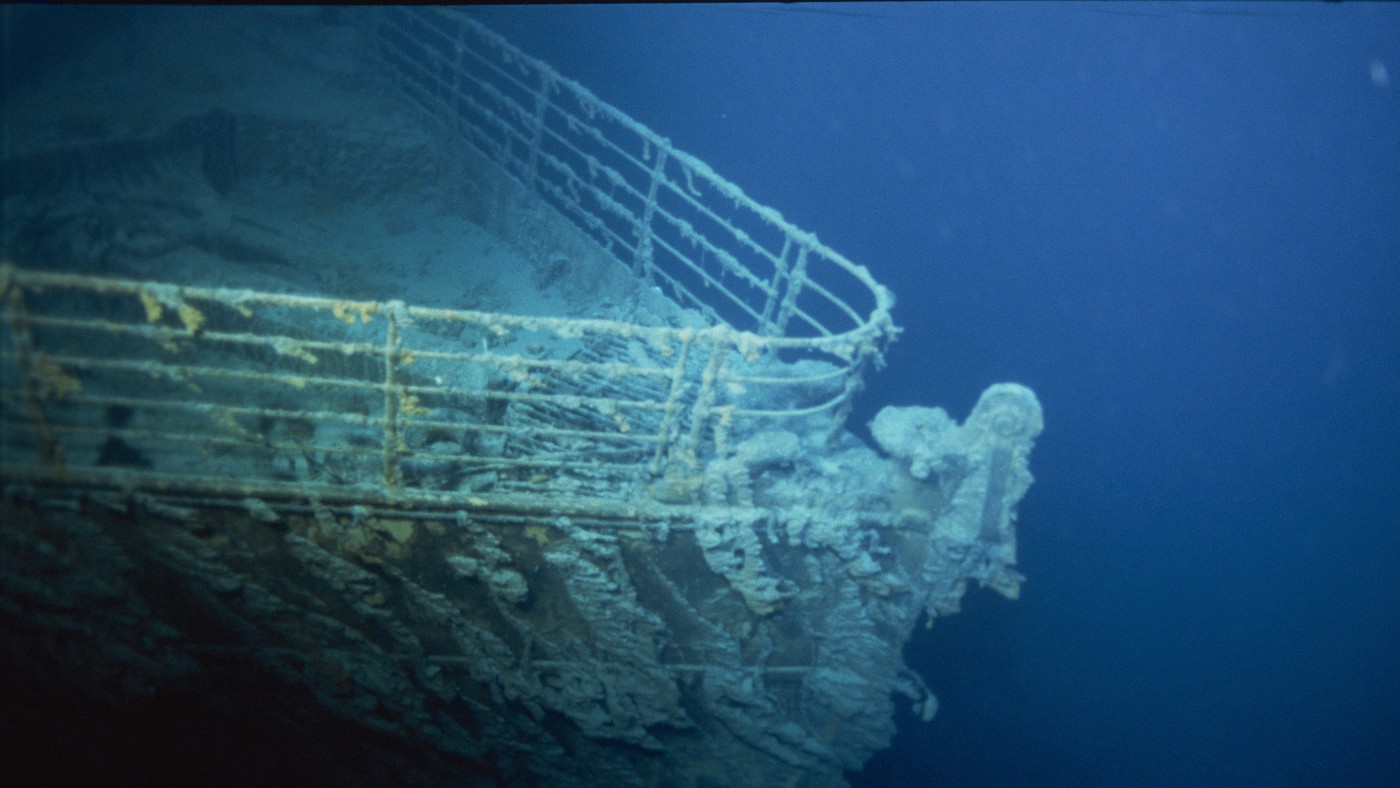 Titan sub: how the doomed voyage gripped the nation
Titan sub: how the doomed voyage gripped the nationUnder the Radar Few events grab the public imagination quite as firmly as a real-time people-in-peril story
-
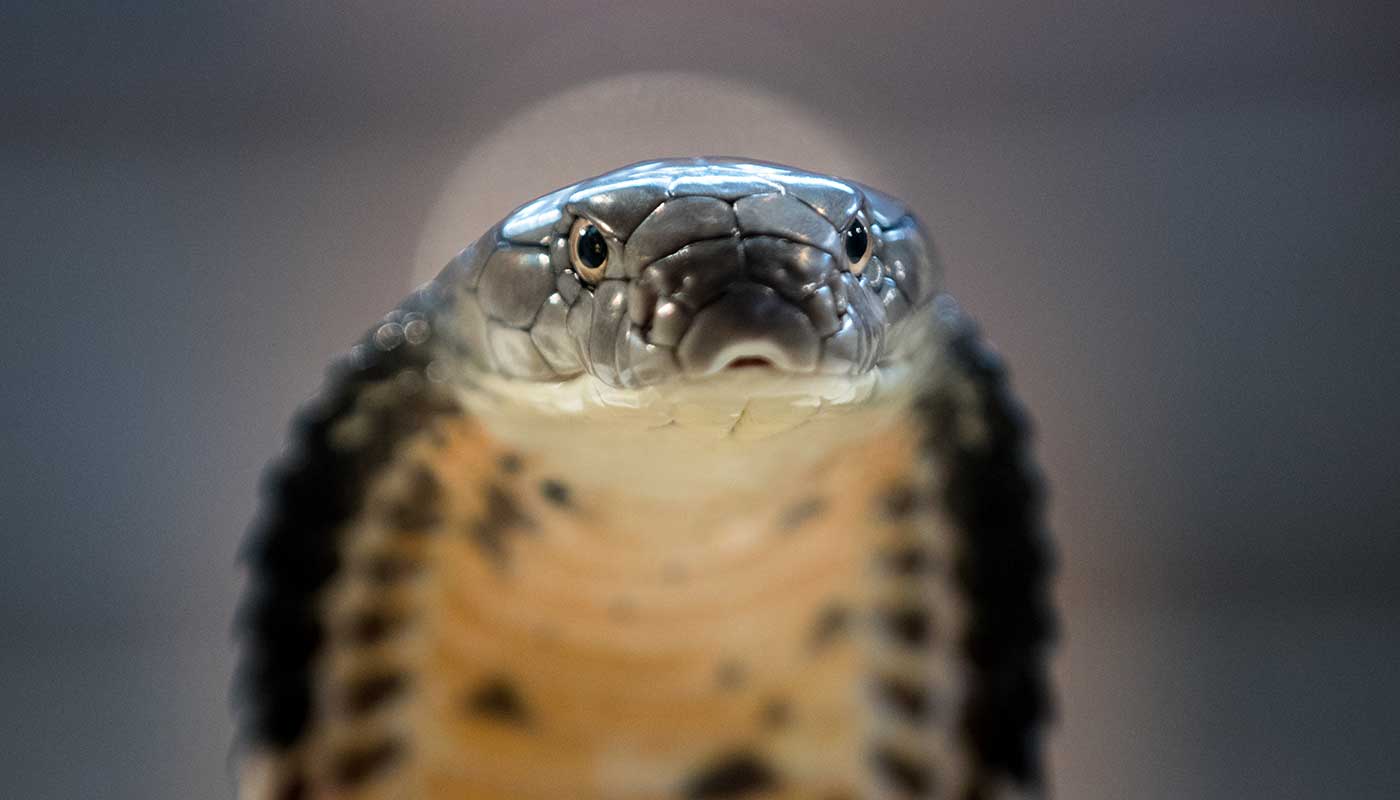 Heatwaves prompt snake escapes
Heatwaves prompt snake escapesfeature And other stories from the stranger side of life